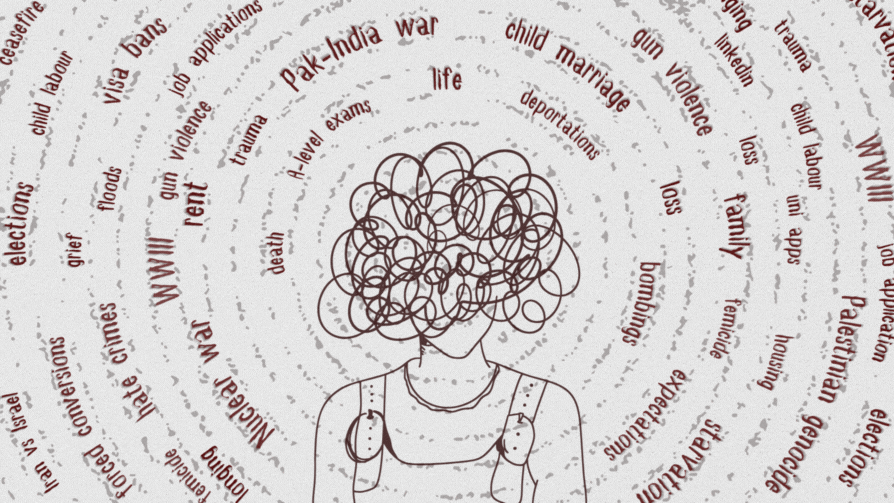Indian censor board blocks Santosh, a film exploring Islamophobia, casteism and police brutality
Indian film Santosh, which has garnered international acclaim for its bold portrayal of misogyny, caste discrimination, and Islamophobia, has been blocked from release by the country’s Central Board of Film Certification (CBFC).
The decision raises concerns over censorship and artistic freedom in India. British-Pakistani actor Riz Ahmed called on people to support the film. Sharing a report by The Guardian to his Instagram story, he urged audiences to “Go see the movie they don’t want you to.”

Directed by British-Indian filmmaker Sandhya Suri, Santosh follows the story of a young widow who joins the police force in a fictional North Indian town and investigates the murder of a Dalit girl. The film delves into deep-seated issues of police brutality, systemic discrimination against Dalits — historically referred to as untouchables — and the broader mistreatment of women, particularly those from marginalised communities.
Additionally, it explores the rising tide of anti-Muslim sentiment in India.
Santosh has received widespread recognition internationally for its stark yet unflinching realism. The film premiered at the Cannes Film Festival to critical praise and was selected as the UK’s official submission for the Best International Feature category at the Oscars. It was also nominated for a BAFTA for Best Debut Feature and earned lead actor Shahana Goswami the Best Actress award at the Asian Film Awards.
Indian audiences, however, are unlikely to see the film in cinemas after the CBFC refused to approve its release, citing concerns over its negative portrayal of the police. While the script had previously been approved for filming in India without objections, the censorship board later demanded extensive cuts that Suri deemed “impossible” to implement without compromising the film’s message.
“It was surprising for all of us because I didn’t feel that these issues were particularly new to Indian cinema or hadn’t been raised before by other films,” Suri told The Guardian. She added that while her film critiques police conduct, it does not glorify violence in the way many mainstream Indian cop films often do.
The development comes amid heightened scrutiny of India’s cultural landscape. While films bearing anti-Muslim or anti-Pakistan sentiments are taking over, comedians like Kunal Kamra are being silenced.
While depictions of police violence are not new in Indian cinema, Suri speculated that Santosh’s documentary-like realism and the absence of a traditional hero figure may have made censors uncomfortable.
With no formal appeals process available once a CBFC decision is made, legal recourse remains the only option for filmmakers wishing to challenge bans. Despite the setback, Suri remains determined to fight for Santosh to reach Indian audiences, stating that it was “vitally important” for those affected by the film’s themes to see it.















Comments